This past weekend marked the two-year anniversary since the mass shooting at a FedEx warehouse in Indianapolis took eight lives, four from the Sikh community on April 15th. In a piece for the Indy Star, Komal Kaur Chohan, granddaughter of the late Amarjeet Kaur Johal, puts forth a call to action.
As a known educator, law and social work student, and community organizer, Chohan has worked tirelessly these past two years to serve the Sikh community. Since the tragic shooting, she’s advocated for worker compensation for the FedEx workers alongside the Sikh Coalition, founded and became president of Umeed-Hope, a non-profit focused on mental health access and resources for South Asian communities , and spoke at the National Unity March in Washington D.C. to shed light on how younger generations show up for the Sikh community when lawmakers have not.
Now on its two-year anniversary, Chohan reflects on how grief is felt collectively and the disappointment of still seeing tragedies from gun violence continue in 2023.
“Two years later, the toll and burdens remain on our community to commemorate the tragedy while our communal desire for security remains unmet,” she wrote.

In her article, Chohan outlines “three truth’s” she’s observed since the tragic shooting in Indiana. The first one describes how the pain of losing a loved one remains long after they’re gone. According to Chohan, her grandmother worked a double-shift the day the shooting happened. The IndyStar reported police found her with a check still in her hand as she was on her way to leave.
LATEST STORIES
The second truth, Chohan wrote, addressed how prevalent gun violence is against the Sikh community and how little to no action is taken to resolve it. Upon this, she compares the FedEx shooting and the Oak Creek Temple shooting in Wisconsin. Although the Oak Creek Temple shooting occurred 11 years ago, Chohan said the aftermath is similar.
“After every shooting, the media will filter in and out as the news cycle changes,” she noted. “They will publish articles and make note of the impact of gun violence. But the community will pick up the pieces — in the same way our community in Indianapolis did two years ago and continue to this day.”
Even though it’s been over a decade since the Sikh temple shooting in Wisconsin, the impact has made many faith congregations implement drastic security measures including reinforced windows resistant to bullets and armed guards patrolling local houses of worship.
The third, and last, truth brought up is how these tragedies are “avoidable” with proper gun reform, which Chohan says is lacking in Indiana. Indiana’s current gun laws delineate that a permit or license is not needed to possess or carry a handgun, shotgun, or rifle. Firearms are allowed in vehicles so long as all persons 18 years of age are considered a “proper person” by the state.
Like Indiana, Wisconsin’s gun laws have had zero revisions since the Oak Creek Temple shooting with loose assault weapon restrictions, no capacity gun magazine limits, and partial background checks.
“Indiana needs to step up,” Chohan stated. “This should be a top priority for every single elected official in this country. Enough lives have been lost. Enough blood has been shed.”
In lieu of the anniversary, victims and families of the victims filed a lawsuit last Thursday against American Tactical Inc.—the distributor of the assault magazine used to kill eight people, ABC 7 Chicago reported. The lawsuit alleges American Tactical Inc. deliberately marketed and sold a product as a weapon to carry out mass shootings.
“Gun manufacturers and distributors know that high capacity magazines are favored by mass shooters due to their ability to kill as many people as possible, therefore American Tactical should have enacted reasonable safeguards to prevent such magazines from falling into the hands of those who should not have them,” said Kris Brown, president of the Brady Center to Prevent Gun Violence, in an interview with ABC 7 Chicago.
Racist rhetoric and white nationalism are some of the main factors to the increased bias-related crimes. According to updated data collected by the FBI, crimes against Sikhs, Asian Americans and Pacific Islanders have more than doubled between 2020 and 2021. Crimes against Sikhs rose 108 percent, Asian Americans 167 percent, and Pacific Islanders 187 percent, respectively, The Marshall Project confirmed.
Chohan concludes with hopes that younger activists and civic participants can foster more progress and elect officials who can establish “bold gun reform.”
“The Sikh community and those of us eligible to vote are watching.”
AsAmNews is incorporated in the state of California as Asian American Media, Inc, a non-profit with 501c3 status. We are currently funded by our readers and the California Library Commission’s Stop The Hate program under the State Dept of Social Services. See their funded resources for direct, prevention and intervention services here. Find additional content from AsAmNews on Instagram , Twitter, Tiktok and Facebook. Please consider interning, joining our staff, or submitting a story, or making a tax-deductible donation.


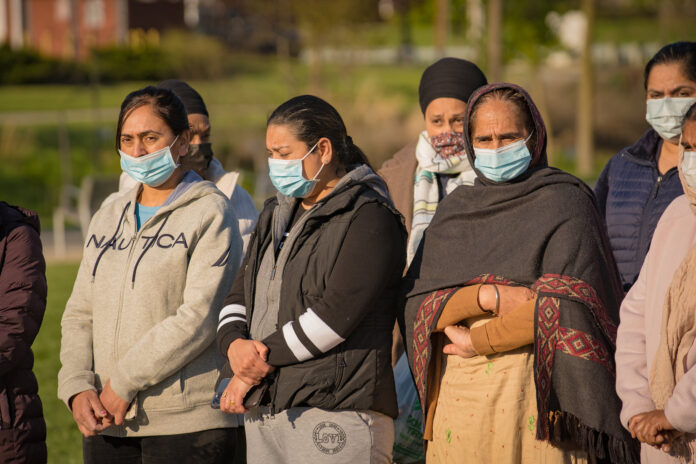
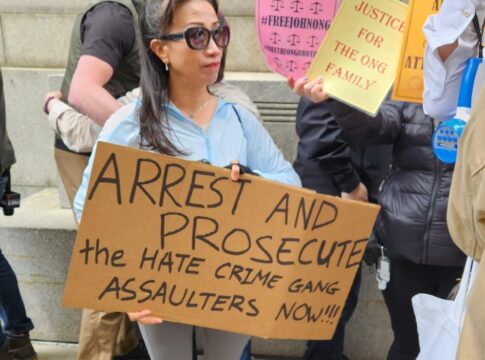
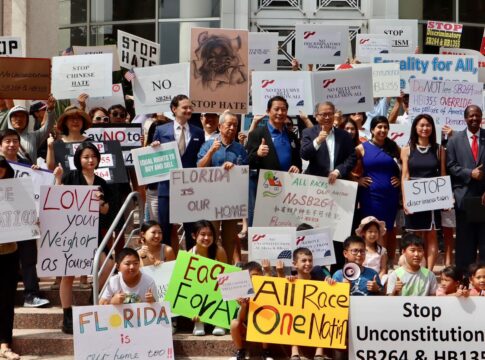
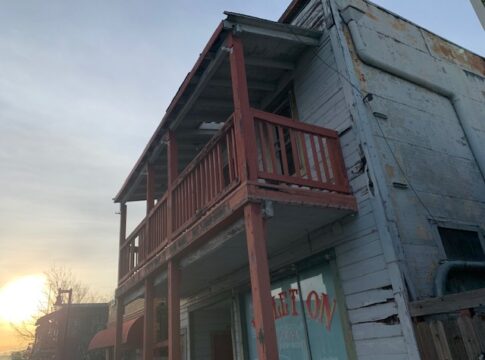

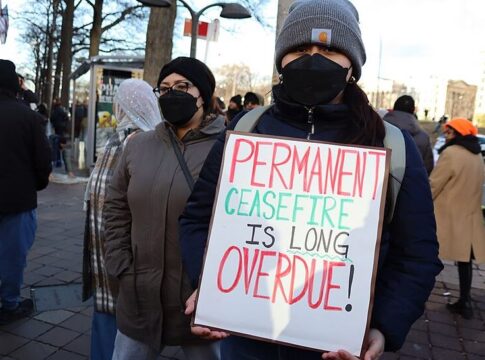


This is wonderful. I also think the AAAPI community needs to sue 45 President for his dangerous and violent rhetoric against Asians via his Chinese hate talk. But this is a start.